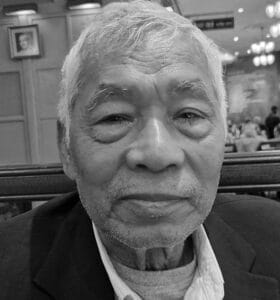Banner: Jaran Ditapichai จรัล ดิษฐาอภิชัย, Prachatai, Flickr
Thailand 2025: An overview of political landscape & trends
- Continuity of Status Quo under the Pheu Thai Government: The government of Paetongtarn Shinawatra, with the Pheu Thai Party as the head of government, succeeding the government of Srettha Thavisin, has been in power for five months. It is not only still a coalition government of loyal conservatives, but most of the ministers are the same. The policies are also the same, focusing on the economy, attempting to implement populist policies, giving 10,000 baht to each person to please the people, and having no progressive political policies, continuing to delay the drafting of a new constitution. It has not yet granted amnesty to political prisoners and has obstructed the enactment of military reform laws. In particular, it has not even touched on or mentioned the amendment of Article 112 of the Criminal Code, which prohibits defamation, insult, or threats against the monarchy (Lèse Majesté). The arrest and imprisonment of youth, students, and members of the public continue. 43 people have been sentenced to prison, including lawyer Anon Nampa, who has been sentenced to 18 years and 10 months in prison. However, despite the urgent and long-term economic problems, the government has not been able to alleviate them. The Thai economy will continue to decline.
- Opposition to the People’s Party: The King, the coalition government, the elite, the Constitutional Court, the Court of Justice, the Election Commission, as well as the military, the Senate, big capitalists, etc., are forming an alliance to oppose the People’s Party democratic reforms in every way, especially in parliamentary proposals, and local elections, There is rumor that there is a plan in place to disqualify members of the House of Representatives belonging to the People’s Party, who campaign for the reform of Lese Majeste law even to the point of dissolving the People’s Party.
- Weakened Democratic Movement: The movement for democracy outside of parliament is still weak because most of the leaders of the student and people’s movement have been arrested and imprisoned. Some have fled the country to seek political asylum in Europe, Canada, and the United States, creating a leadership vacuum in the country. At the same time, the government continues to arrest critics of the King and those who propose reforms to the monarchy, hence limiting freedom of expression to the point of violating human rights. Fighting outside of parliament is even more difficult. The people who once united against the military government now split into 2 camps, one supporting the current Pheu Thai government and the other People’s party. This makes it more difficult for the people movement to unite and force the policy. So many people place their hopes in parliament.
- Lack of Interest in International Affairs: The government and most Thai people are not interested in international politics, or affairs, such as the Russian invading Ukraine war or the Israel destroying Palestinian. There are some concerns about the aggressive policies of US President Donald Trump on trade conflict with the People’s Republic of China. The Thai government continues to pursue a policy of indifference towards Myanmar, a neighboring country with a border spanning more than 2,000 kilometers. As long as the civil war does not end and Myanmar is not a democracy, Thailand and ASEAN will not be stable.
- Appeal to the European Union: We call on the European Union to pay attention to the political situation in Thailand and, more importantly, the role of the Thai monarchy. As long as King Vajiralongkorn still controls politics, Thailand will never be a democracy. This will not be beneficial and will not benefit most countries in the European Union.
Thailand Data
Compared to November, there was one additional case recorded, stemming from the #Mob18July2021 public assembly. This was not a new charge, but rather a result of the police splitting the original case into two separate cases when submitting the investigation report to the public prosecutor. As a result, the two cases fall under two separate court jurisdictions, and the case count was updated accordingly.
Altogether, there have been at least 4,022 charges brought against individuals, although some of them face multiple charges across different cases.
Prosecution statistics in key offences;
- Section 112 (lèse-majesté) of the Criminal Code, at least 276 individuals in 308 cases (Of this, at least 162 cases have stemmed from reports to the police made by members of the public.)
- Section 116 (sedition) of the Criminal Code, at least 154 individuals in 53 cases
- Violation of the Emergency Decree, at least 1,466 individuals in 674 cases
- Violation of the Public Assembly Act, at least 182 individuals in 100 cases
- Violation of the Computer Crimes Act, at least 208 individuals in 230 cases
- Contempt of court, at least 43 individuals in 25 cases, and insult of the court, at least 37 individuals in 11 cases
Of 1,311 cases, 661 cases have reached their final verdicts (although some cases remain outstanding, since certain defendants decided to appeal their verdicts, while others have not).

Jaran Ditapichai, a Thai political scientist and advocate of human rights.
Jaran Ditapichai
20 February 2025
Profile: https://prachataienglish.com/node/5123
In Thai –
แนวโน้มสถานการณ์ปี2025
1 รัฐบาลแพทองธาร ชินวัตร ที่มีพรรคเพื่อไทยเป็นแกนนำ ซึ่งสืบต่อมาจากรัฐบาลเศรษฐา ทวีสิน บริหารประเทศมา5 เดือน ไม่เพียงยังเป็นรัฐบาลผสมอนุรักษ์นิยมจงรักษ์ภัคดี หากรัฐมนตรีส่วนใหญ่เป็นคนเดิม นโยบายก็เหมือนเดิม เน้นเศรษฐกิจ พยายามดำเนินนโยบายประชานิยม แจกเงินแก่ประชาชนคนละ1 หมื่นบาท แต่ในทางการเมือง เยื้อเวลาการจัดทำรัฐธรรมนูญฉบับใหม่ ยังไม่นิรโทษกรรมผู้ต้องคดีทางการเมือง ขัดขวางการออกกฎหมายปฏิรูปกองทัพ โดยเฉพาะไม่แตะต้องแม้กระทั่งพูดถึงการแก้ไขมาตร112 ของประมวลกฎหมายอาญาห้ามดูหมิ่น หมิ่นประมาทกษัตริย์(Lèse Majesté) ซึ่งยังมีการจับกุมขังเยาวชนนักเรียนนักศึกษาประชาชนต่อไป มีผู้ถูกพิพากษาจำคุกไปแล้ว43 คน ในนั้นมีทนายอานนท์ นำภา ถูกตัดสินจำคุก 18 ปี 10 เดือน
อย่างไรก็ตาม แม้ด้านเศรษฐกิจทั้งเร่งด่วนและระยาว รัฐบาลก็ไม่สามารถแก้ไขปัญหาให้เบาบางลงได้ ภาวะเศรษฐกิจไทย จึงตกต่ำต่อไป
2 กษัตริย์ พรรคร่วมรัฐบาล ชนชั้นนำ ศาลรัฐธรรมนูญ ศาลยุติธรรม คณะกรรมการเลือกตั้ง กองทัพ สมาขิกวุฒิสภา นายทุนใหญ่ ฯลฯ พยายามรวมตัวเป็นพันธมิตรต่อต้านพรรคประชาขน(พรรคก้าวไกลเดิม ) ทั้งในสภา การเลือกตั้งท้องถิ่น และต่อต้านประชาธิปไตย ทุกวิถีทาง ดังนั้น แนวโน้มตัดสิทธิสมาขิกสภาผู้แทนสังกัดพรรคประขาชน กระทั่งยุบพรรคประชาชนยังคงจะเกิดขึ้นอีก
3 การเคลื่อนไหวเพื่อประชาธิปไตย และความก้าวหน้านอกสภา อยู่ในระยะกระแสต่ำ เพราะผู้นำขบวนการนักศึกษาประชาชนส่วนใหญ่ถูกจับกุมคุมขัง บางส่วนหลบหนีออกนอกประเทศมาขอลี้ภัยการเมืองในยุโรป แคนาดา สหรัฐอเมริกา ขาดผู้นำในประเทศ ในขณะเดียวกันทางการรัฐบาลยังคงจับกุมผู้วิจารณ์กษัตริย์ เสนอปฏิรูปสถาบันกษัตริย์อย่างต่อเนื่องอันเป็นการจำกัดเสรีภาพและเมิดสิทธิมนถษย์ การต่อสู้นอกสภาทำยากยิ่งขึ้น ยิ่งมีความขัดแย้งระหว่างประชาชนผู้สนับสนุนรัฐบาล กับผู้สนับสนุนพรรคประชาชนขยายตัวไป ไม่สามัคคีกัน ยิ่งทำให้การเคลื่อนไหวดังกล่าวเป็นไปยาก ประชาชนจึงฝากความหวังกับพรรคการเมืองในการต่อสู้ในสภา เท่านั้น
4 รัฐบาลและประชาชนไทยส่วนใหญ่ไม่สนใจการเมืองระหว่างประเทศ ไม่สนใจประชาคมโลก ไม่สนใจสงครามรัสเขียรุกรานยูเครน สงครามอิสราเอลทำลายล้างปาเลสไตน์ แม้มีบางส่วนวิตกนโยบายแข็งกร้าวของโดนัล ทรัมป์ ประธานาธิบดีสหรัฐอเมริกา และการแข่งขันกับสาธารณรัฐประชาชนจีน
และที่สำคัญ รัฐบาลไทยยังคงดำเนินนโยบายเฉื่อยเนือยต่อเมียนมาร์ เพื่อนบ้านที่มีชายแดนติดกัน2 พันกว่ากิโลเมตร ตราบใดสงครามกลางเมืองไม่ยุติ เมียนมาร์ไม่เป็นประขาธิปไตย ประเทศไทย และอาเซียนจะไม่มีเสถียรภาพ
5 ขอเรียกร้องต่อสหภาพยุโรปสนใจสถานการณ์การเมืองไทย สนใจบทบาทสถาบันกษัตรืย์ไทย ตราบใดกษัตริย์วชิราลงกรณ์ ยังคงคุมการเมือง ประเทศไทยจัดไม่มีวันเป็นประขาธิปไตย ซึ่งย่อมไม่เป็นผลดีและเอื้ออำนวยผลประโยขน์ต่อประเทศส่วนใหญ่ในสหภาพยุโรป
กุมภาพันธ์ 2025
จรัล ดิษฐาอภิชัย
ที่ปรึกษาสมาคมนักประชาธิปไตยชาวไทยไร้พรมแดน

